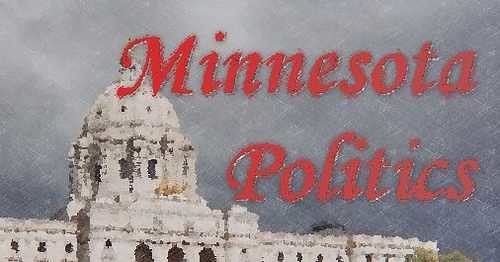The Pawlenty Philosophy
I'm noticing a pattern here. First, MnDOT's plans for the Crosstown reconstruction project require bidders to pay for part of the project themselves temporarily. Now, the administration is asking the private sector to provide highly-trained experts to the state at no cost.
Maybe the Pawlenty re-election slogan should be "Vote for Tim Pawlenty. He's a little short right now and just needs a bit to tide him over. Really, he'll have the money next week, he swears..."



4 Comments:
Even if companies pick up the tab, where's the accountability? Who do you fire if it goes wrong?
But hey since we're at this level, if anyone wants to install a sprinkler system *for free* in my yard (I'll buy the parts) drop me a line.
One of History’s Great Failures>
Visiting Budapest at the moment, President Bush is in a position to celebrate a little ahead of time the 50th anniversary of the Hungarian revolution of 1956. And there is much to celebrate. That revolution was a classic national uprising in which the people of a small nation took up arms for the sake of independence. They had little or no chance of success, because their oppressor was the Soviet Union. Motivated by the ideology of Communism, the Soviet Union had long proved itself the killer and jailer of small nations.
The Red Army at the end of the world war had driven the Germans out of the country, but they could not bring freedom because, as the Hungarian writer Sandor Marai lamented, they had no freedom for themselves. Soviet occupation meant a large garrison, and instructions from the Kremlin. Thanks to the notorious “salami tactics,” the Soviets replaced local democratic parties with Communists carefully chosen for their obedience. Industry, finance, agriculture, everything, was taken into the hands of the party. Former aristocrats, landowners, intellectuals, journalists, artists, priests, were rounded up for mock trials, and many a memoir unforgettably evokes their experiences in concentration camps like Vac. Two days after celebrating mass on Christmas 1948, Cardinal Mindszenty, the Hungarian prelate, was arrested. President Bush can rejoice that Mindszenty eventually found sanctuary in the American embassy.
In a sinister development, Stalin was soon to purge all the Communist parties of the new Soviet bloc. In Hungary, the foreign minister, Laszlo Rajk, a picture-book Communist, was accused of treason and hanged, and so was the general who had set up the secret police. Once Stalin was safely dead, these horrors prompted his successor Nikita Khrushchev to admit some degree of criminality at the Party Conference in Moscow in 1956. An unintentional consequence of this speech was the replacement of Stalinist stooges in Hungary by Imre Nagy, a party man but willing to follow Khrushchev and admit the need for reforms.
A student demonstration was then enough to spark an uprising. President Bush might like to recall how the crowd pulled down the gigantic bronze statue of Stalin, just as another crowd was to pull down a similar statue of Saddam Hussein. The camps and prisons opened, and here and there in the country, secret policemen were killed. Yuri Andropov, then a Soviet official in Budapest but later general secretary in Moscow, organized the suppression of the revolution with a combination of deceit and force. By the time the Soviet tanks had finished, between two and three thousand freedom fighters were dead. Twenty thousand people were then arrested, and at least 200,000 more fled the country, many of them to have successful careers abroad. Imre Nagy and his closest collaborators were hanged.
At his execution, Nagy declared that one day he would be rehabilitated. So it proved. In 1989, Nagy was reburied in the cemetery where the nation’s great men lie. Almost immediately afterwards, the Hungarian authorities lifted the country’s iron curtain, and the consequent freedom of movement signified the ending of the Cold War. The revolution of 1956 may have been a costly failure, but Hungarian national pride, and today’s delight in freedom, stem from its heroism.
Another of History's Great Failures:
George W. Bush
da man, honey, get your own blog if you wish to take up file space.
I got one. Just click on "da man" and check it out!
By the way, there was a great quote from W. today at the site of the Hungarian Revolution Memorial:
The lesson of the Hungarian experience is clear: Liberty can be delayed, but it cannot be denied. The desire for liberty is universal, because it is written by our Creator into the hearts of every man, woman, and child on this Earth. And as people across the world step forward to claim their own freedom, they will take inspiration from your example, and draw hope from your success."
I just want to keep reminding you white liberals that non-white, non-Western European people deserve your support as they seek freedom.
Answer this question: "If the Iraqi people were white, would you support the War?" I think most of us know the real answer.
Post a Comment
<< Home